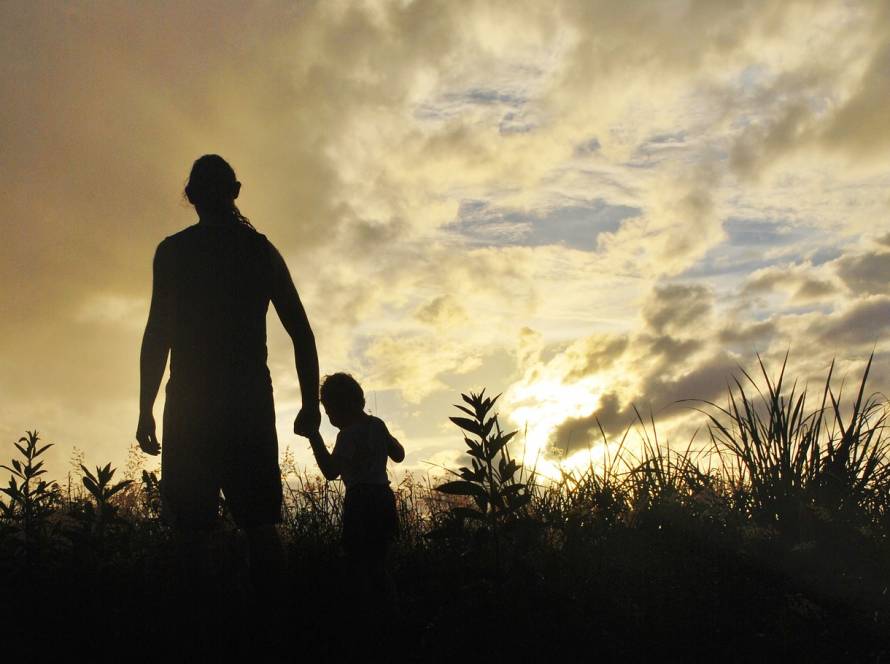When it comes to being a parent, I think one of the trickiest lines to walk is the line of confession and repentance. I mean think about it. We want our kids to come and tell us the truth but we also feel that they need to experience consequences for the actions they’ve done. We want them to acknowledge when they’ve hit their brother, knocked over the lamp, went outside their boundaries, or lied about what happened BUT we also want to reward them for owning up to it and telling the truth. So we are in the tricky spot of saying, “Thank you for telling the truth but here’s your consequence for the behavior.”
I’ve always struggled with how best to do this and let me say up front, I don’t have the answer. But I’ve been challenged lately to consider my approach.
As we move into the season of Lent, we can’t help but hear a lot of talk about confession and repentance. This idea of coming before the Lord, acknowledging our sins, confessing our wrong doing, and reflecting on this for the forty days leading to Easter becomes central to many who celebrate Lent.
But I can’t help but think; if it is a tricky situation for me as a parent, perhaps there’s more to this Lenten journey as well.
When I think of confession and repentance, I tend to conjure up thoughts of sackcloth and ashes and sadness and despair. But maybe that’s not the whole story? I love these thoughts shared by my husband in a devotional he recently wrote.
Repentance is a difficult subject for us in the modern world. More than that, I think that it’s a difficult subject for many of us in the Christian faith. I mean, we know that it’s important and that it has something to do with salvation but I’m afraid mostly it still conjures up memories of shame, images of us beating our chests and crying out for mercy, reminders of our brokenness and of our inability to do anything about it.
But what if this vision of repentance was somehow misleading? What if repentance in the Christian tradition had less to do with our failure and more to do with God’s infinite grace?
What if repentance, far from being a season of sorrow, was actually a period of release, of freedom, of liberation?
What if it was the very life of God transforming our lives and others’ lives and the very life of the world? What if it was an invitation to God to move marvelously? How might that vision repentance change the way we approach topics like confession, or remorse, or restitution?
In Isaiah 30.15 we read that it is in repentance and rest that we discover our salvation. How can we teach our children that there is rest in the act of repentance?
In Matthew 4.17 we find Jesus saying, “repent, for the Kingdom of God is at hand.” How can we help our children see that repentance is related to experiencing the kingdom of God?
In Acts 3.19 we are exhorted to “repent… so that times of refreshing may come from the Lord.” How can we allow our children to experience times of refreshing as a result of repentance?
Maybe there is a way for us to teach our children that repentance isn’t all gloom and doom, sadness and despair, but rather an invitation into a deeper experience of God’s grace, His unending Love and His infinite mercy.
I think it needs to begin with me, with us.
 Because if my view of repentance is primarily one of beating my chest or memories of shame, I can inadvertently put that on my children. But if I begin to allow Christ to help me see confession and repentance as the first step on a journey of freedom, of rest, of refreshing, and of experiencing the kingdom of God, then perhaps I will begin to instill this vision in my children.
Because if my view of repentance is primarily one of beating my chest or memories of shame, I can inadvertently put that on my children. But if I begin to allow Christ to help me see confession and repentance as the first step on a journey of freedom, of rest, of refreshing, and of experiencing the kingdom of God, then perhaps I will begin to instill this vision in my children.
Psalm 30:5 reminds us that God’s “anger lasts only a moment, but his favor lasts a lifetime; weeping may stay for the night, but rejoicing comes in the morning.” The sadness and shame, the guilt and the sorrow of confession and repentance similarly need only last for a brief moment, but the freedom and joy and rest for an eternity. In fact, Paul tells us that “godly sorrow brings repentance that leads to salvation”; sorrow precedes repentance but repentance precedes salvation, an experience of great joy! (2 Cor. 7:10).
Repentance isn’t the end of joy; repentance is the beginning. It’s the gateway to freedom. Confession isn’t the start of shame; it’s the resounding end of it!
What if we could re-frame that for our children? How much greater would their experience of confession and repentance be? How much more eager would they be to move quickly from sorrow to joy?
As we go through this season of Lent, let’s ask God to help us understand more fully the gift of repentance and experience more richly the freedom it brings so that we can pass it on to the next generation.
For more information about
- Kids in Worship
- Determining which Type of Family Ministry model works best for your church
- Discipleship in Intergenerational community
- Encouraging the continued conversation through Practical Discipleship at Home
- Seminars, Workshops, Coaching
Check out to ReFocus Ministry or “like” our Facebook page. Join our conversation at theReFocus Family and Intergen Ministry group on Facebook.
About this Blog

Refocus Ministry was started by Christina Embree, wife to Pastor Luke, mom to three wonderful kids, and family minister at Nicholasville UMC. She is passionate about seeing churches partnering with families to encourage faith formation at home and equipping parents to disciple their kids in the faith. She recently graduated with a Masters of Arts in Ministry focusing on Family, Youth and Children’s Ministry at Wesley Seminary, she also blogs at www.refocusministry.org and is a contributing blogger at D6 Family and Seedbed



1 Comment